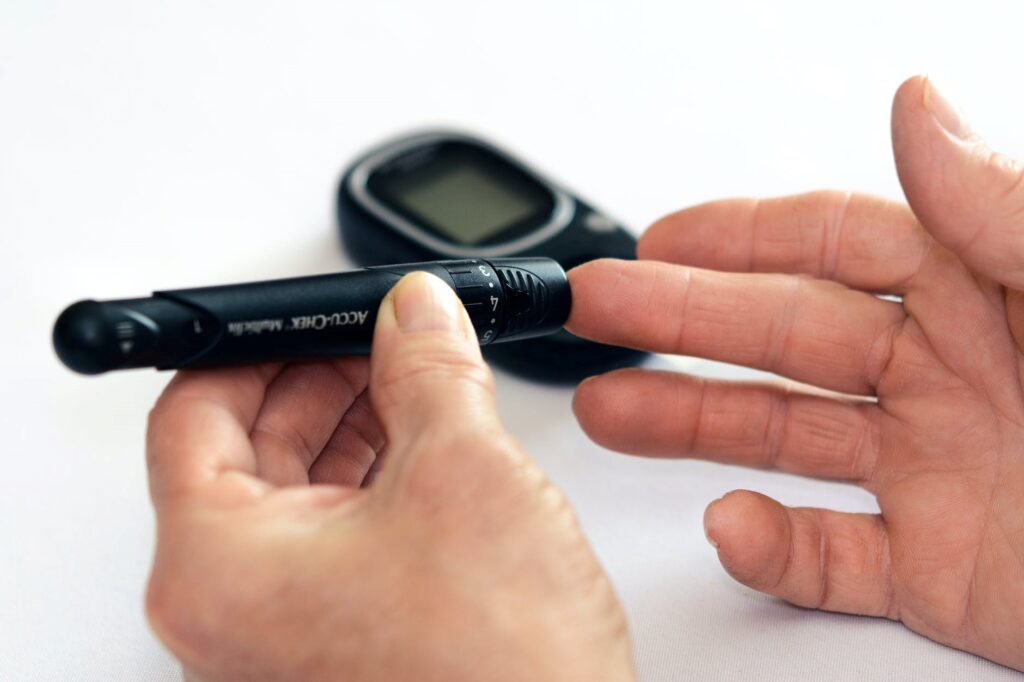Lifestyle diseases are affecting humans across the globe due to various factors such as poor diet, obesity, addictions and stress in general. Diabetes is one such lifestyle disease that is spreading like wildfire worldwide. Taking the necessary steps to control diabetes and regular monitoring of blood sugar levels can help one cope with this health condition more effectively. The Fasting Blood Sugar Test is one of the most accurate tests to determine the glucose level in your blood. Before we learn more about the test, let’s first understand what leads to this disease.

Table of Contents
What is Diabetes?
Diabetes is a serious health condition in which the body is not able to produce or manage insulin which ultimately shoots up the blood sugar levels. Carbohydrates from the food we eat gets first broken down into glucose before it enters the blood stream. Our pancreas produces insulin which helps in transporting this glucose from the blood stream into the cells. When the pancreas is unable to make insulin (Type 1 Diabetes) or when the body is unable to manage insulin usage (Type 2 Diabetes), the glucose levels in the blood stream increases leading to diabetes or hyperglycaemia. Gestational diabetes is a health condition in which the glucose level in the body increases during pregnancy in women. Frequent urination, feeling thirsty, tiredness, numbness in hands, dry skin, blurry vision is some of the most common symptoms of diabetes. If you are experiencing any of the symptoms mentioned above, consult a doctor as soon as possible and take necessary medications.
What is a Fasting Blood Sugar Test?
The Fasting Blood Sugar Test may be prescribed by a doctor to measure the blood sugar level after a fasting period of 8 to 12 hours. It is advised to monitor the sugar levels in a diabetic patient or as a diagnosis procedure to detect diabetes in a patient with related symptoms. Depending on the sugar level found in the test, the doctor can identify the severity of the disease.
Significance
When you are in a Fasting state, most of the carbohydrates from the food that you ate a long time ago, has already been converted to glucose and consumed by your body. When you prolong the fasting period, the body starts producing a hormone called Glucagon which increases the glucose levels. A person without diabetes will be able to maintain the glucose levels again with the help of insulin. However, a diabetic person will not be able to maintain the glucose level as he/she is unable to produce adequate insulin or is unable to use insulin effectively. The test is carried out after the fasting state as it is easier to detect the imbalance of glucose level in the blood during this period.
Preparation
- The doctor may advise 8-12 hours of fasting before the test is conducted.
- You may have your dinner early and go for the test early next morning
- Drink enough water and stay hydrated as water has no effect on the test results
- You can continue with your routine medications if any, during the fasting period
- If the test is prescribed during pregnancy period, consult your doctor about the precautionary measures to be taken
Procedure
- The area from where the blood sample is to be taken is firstly cleaned with an antiseptic solution
- An elastic band might be tied to your arms to find the vein from where the blood sample is to be drawn
- A syringe is inserted into the vein to draw the blood and then is transferred to an air-tight container
- You may feel a painful prick in your arm during this procedure, which will slowly fade away
- The area will be then covered with a bandage to prevent further bleeding
- If you are doing the test using a glucometer at home, you will have to prick the tip of your finger and collect the blood sample for the test
Levels
Normal range for adults: Less than 100 mg/dL
Pre-diabetes: 110-125 mg/dL.
This condition indicates that you are more prone to type-2 diabetes and that you must take the necessary precautionary measures to control blood sugar
Diabetes: More than 126 mg/dL
This result indicates that you are diabetic, and the doctor may advise you to monitor sugar levels regularly along with necessary medications and lifestyle changes.
(Please note: The range mentioned above may vary from person to person depending on various factors. Kindly consult and discuss the results with your doctor to understand your health condition better)
Switching to a healthier lifestyle and following a strict diet as suggested by the doctor are very important to keep your diabetes under check. If you are diagnosed with diabetes or are pre-diabetic, then it is very important to monitor the blood sugar levels at regular intervals by taking the fasting blood sugar test. But as they say, prevention is better than cure! With regular exercise and a healthy diet, you can reduce the chances of being affected by this health issue as you grow older.
You must be logged in to post a comment.